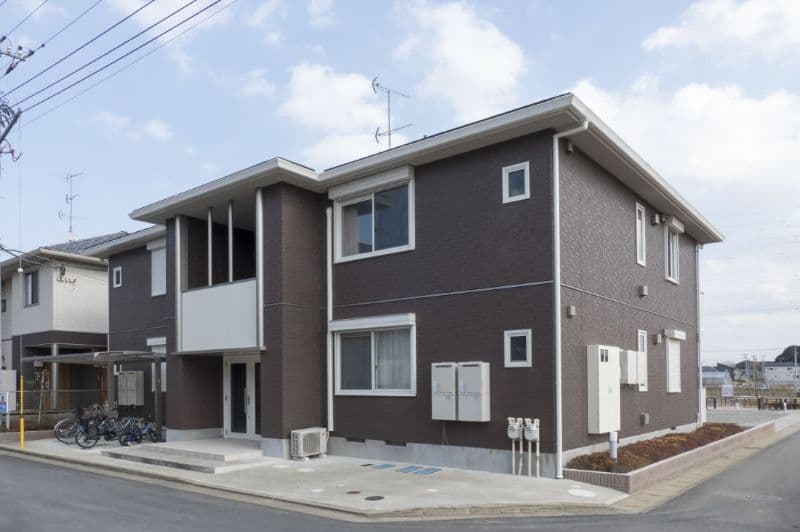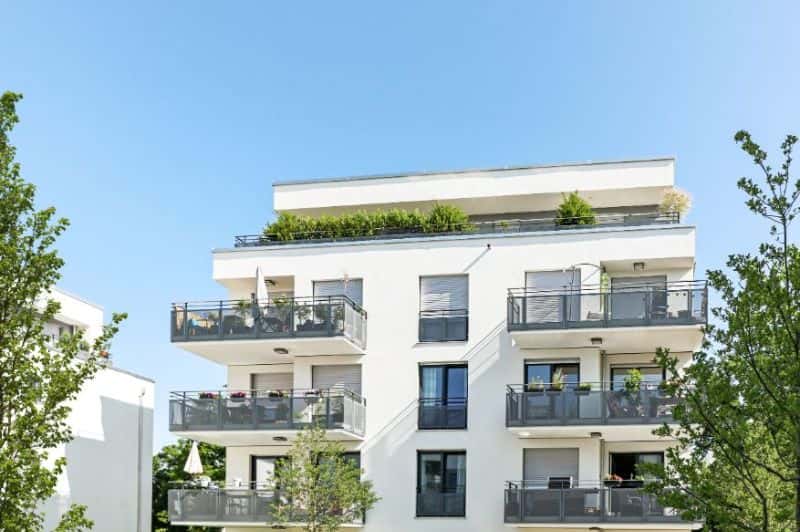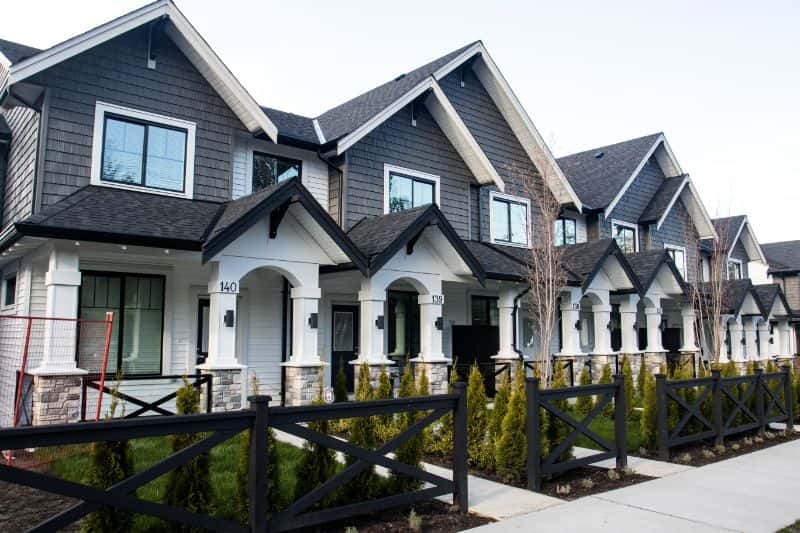
YOUR QUOTE IN 2 MINS
1 (844) 383-3686
+110 Broker Partners in Quebec.
Compare Life Insurance Prices from +20 Insurers.
Ask your Quote in 2 Minutes

THE BEST WAY TO SAVE ON YOUR HOME INSURANCE IS BY SHOPPING AROUND WITH THE HELP OF A PROFESSIONAL
FIND THE BEST HOME INSURANCE IN NO TIME!
Just fill in the form and one of our partner insurers will find you the best solution.

How much is Insurance for an Income Property in Quebec?

Buying an income property is smart and profitable investment in Quebec. The tenants of the property pay rent each month which can go towards paying the mortgage and other expenses. The value of the property increases and so does the potential income.
Insurance for an income property is one of the important ways to protect the investment. How does it work? How is it different from standard home insurance and how much does it cost?
For a landlord, it is important to understand the benefits of income property insurance and know how to find the right policy that suits your needs and budget.
We will present the information you need regarding insurance for an income property to guide you and answer your questions.
This type of insurance is also called landlord insurance.
You can also get free and no-obligation quotes to compare so you can save time and money by simply filling out our short online form.
Insurance for an income property vs. standard home insurance
First of all, it is important to understand that insurance for an income property is very different from standard home insurance which is designed for a principal residence.
Insurance for an income property protects an investment rather than just a house. Generally, we are speaking of protection for:
The structure, walls, floors, kitchen, etc.)
Protection of the rental income in the event of a claim that prevents a tenant from remaining in their accommodation while repairs are being carried out.
Attachments (Shed, detached garage, etc.)
Also, the risk is greater for the insurer since the owner does not live in the building. In comparison with a principal residence where one insures the contents and the owner resides there.
Major benefits of income property insurance

Your income property is most likely your most valuable asset apart from your principal residence. It could be your primary or secondary source of revenue. Thus, it is important to protect your investment from risks such as fire, damage, or theft. The income you derive from your property also needs to be secured to ensure you don’t lose money.
So how does insurance for an income property work?
Your building
Your building will be covered for specified risks. It will be protected in the event of fire, lightning, windstorms, water main break and hail. In case of total damage, you can get money to rebuild your property.
Tenant Provisions
The furniture and equipment you provide to your tenants can be covered. Whether your property is fully-furnished or semi-furnished, your insurance policy can ensure you don’t need to spend a fortune to refurnish in case of damage or loss.
Civil Liability
You can never guarantee that no accident will happen on your property. Civil liability protects you in case someone gets injured while on your property. It can also cover damage which you could be liable as the landlord or owner.
Rental Income protection
The income you earn from your income property is important because it helps with your expenses, specifically your mortgage. But what would happen if your tenant goes into default, or if your property gets damaged and cannot be occupied? Basic coverage insures rental income for up to 10% or more, depending on the insurer. You can also increase the coverage of the policy up to its full value and your total rental income.
As you can see, insurance for your income property protects your property and your income, too.
Some insurance companies offer features to cover legal fees, sewer back-up, and aboveground water. You can compare different policies to find the right one for your needs.
What makes the price of home insurance for an Income Property vary?

Several elements can cause the insurance premium for an income property to vary.
Here are a few:
- Whether or not the insurer also owns the main residence of the owner
- The number of units in the building (6 and less = personal lines insurance $$ / 7 and more = commercial $$$$)
- The size of the building and the cost of reconstruction
- The type of coverage requested (type of contract/amendments)
- The furniture supplied by the owner (they will have to be considered in the insurance premium to protect them → belong to the owner)
- The area and the city where the building is located
- Building located less than 300 meters or more than 300 meters from a fire hydrant
- Building located less than 8 km or more than 8 km from a fire station
- The year of the building and the renovations carried out over the years
- Several factors affect the home insurance premium for an income property. It is important to compare the rates of several insurance companies to see which one can offer the best price and coverage.
2 to 6 unit plex vs. Building with 7 or more units
Let’s now move on to one of the subjects where there are the most questions, namely, what is the difference between insuring an income building with 2 to 6 units versus a building with 7 or more units?
What is the distinction to be made? What is the price difference? In fact, the number of dwellings will influence the insurer’s decision to insure your building on personal or commercial lines.

2 to 6 dwellings
The building is insured on personal lines. The customer has access to a premium that is often less expensive than the commercial one.
7 units or more
The building is commercially insured so the home insurance premium is usually more expensive per year.

In both cases, the coverage is quite similar. To find out more about the differences between the two, please fill out our form to speak with a broker who will be able to do the evaluation for you.
5 examples of home insurance prices for income properties

Now let’s get down to business, and compare insurance prices for various types of income properties located in various regions of Quebec.
All prices you will see are indicative only. The prices are not guaranteed. To get actual quotes based on the specifics of your property, please fill out our free online form below.
General conditions used for premium calculation:
- Owner → 45-year old male
- Fire hydrant within 300 meters/ fire station within 8 km.
- The principal risk of the insured (several insurers require it to provide coverage)
- Portfolio discount (car contract with the same insurer as well)
- Exterior cladding → 100% brick
- Heating → electricity only
- Uninhabited basement (unfinished)
- Roofing → Flat 2020 / All water heaters → 2020 / Doors and windows → 2020
- $1,000 deductible / $2 million civil liability
- Water damage (above ground) + (below ground) = included Creditor present on the building
Renovated century-old duplex in Lévis Comprehensive insurance |
Description of the property Duplex in Lévis (Desjardins)
| |
| Annual Insurance Premium | $2,033 (before tax) |
Triplex in Longueuil Comprehensive insurance |
Description of the property Triplex from 1980 in Longueuil
| |
| Annual Insurance Premium | $2,263 (before tax) |
Quadruplex 1990 in Quebec Comprehensive insurance |
Description of the property Multi-housing of 6 doors in Montreal
| |
| Annual Insurance Premium | $2,927 (before tax) |
1970 Apartment in Montreal (6 units) Comprehensive insurance |
Description of the property Multi-housing of 6 doors in Montreal
| |
| Annual Insurance Premium | $3,804 (before tax) |
2010 Duplex in Sherbrooke Comprehensive insurance |
Description of the property 2010 Duplex in Sherbrooke
| |
| Annual Insurance Premium | $1,937 (before tax) |
FAQs about insurance for income properties in Quebec
We present below some of the most common questions regarding insurance for income properties or landlord insurance in Quebec.
Why buy landlord insurance?
Many property owners wonder if they can just get a standard home insurance policy rather than landlord insurance. If you live in the house and just rent out the basement, you may be able to do so as long as you inform your insurer. But if you are insuring a separate income property, you need landlord insurance to protect your property from damage. If you have a mortgage, your lender will certainly require it.
What does liability insurance cover?
Liability insurance protects you in case someone gets injured on your property or in case of damage related to your ownership of the property. You could get sued, which will give rise to expenses on your part.
Does the insurance policy cover tenants’ belongings, too?
No, your tenants need to get renters’ insurance for their belongings. As a landlord, you can ask a tenant to do so as part of your lease.
What isn’t covered by income property insurance?
Your policy applies to your property and the contents you own on the property. It does not cover damage to your tenant’s belongings. As for damage to the building, the policy will have specific perils named and anything that isn’t on the policy is not covered.
Compare 3 home insurance prices for your income property in 2 minutes!

Do you own an income property? Would you like to receive insurance quotes for your income property?
Taking the time to shop around and compare could save you a lot of money over time.
Fill out the free form on this page to get 3 quotes from our partner insurers and brokers all across Quebec.
Compare prices and features and choose the most advantageous policy for you. Compare Insurances Online is here to help you save time and money.
Save time and money!
Compare Insurances Online is an online bid solicitation service for insurance brokers and direct insurers. Our network of partners covers Quebec: Montreal, Quebec, Laval, Longueuil, Sherbrooke, Trois-Rivières, Gatineau, etc. All types of insurance are available for all kinds of budgets.


THE BEST WAY TO SAVE ON YOUR HOME INSURANCE IS BY SHOPPING AROUND WITH THE HELP OF A PROFESSIONAL


TYPES OF HOME INSURANCE OFFERED
CALL US TO REQUEST YOUR QUOTES OR FOR MORE DETAILS
Become A PartnerContact
Terms and Conditions
About Compare Insurances Online
Publications & Consulting
Compareinsurancesonline.ca is not an insurance company or an insurance broker but a web platform that connects users looking for insurance with insurance brokers.
The Top 12 Home Insurance Companies in Canada French
French
